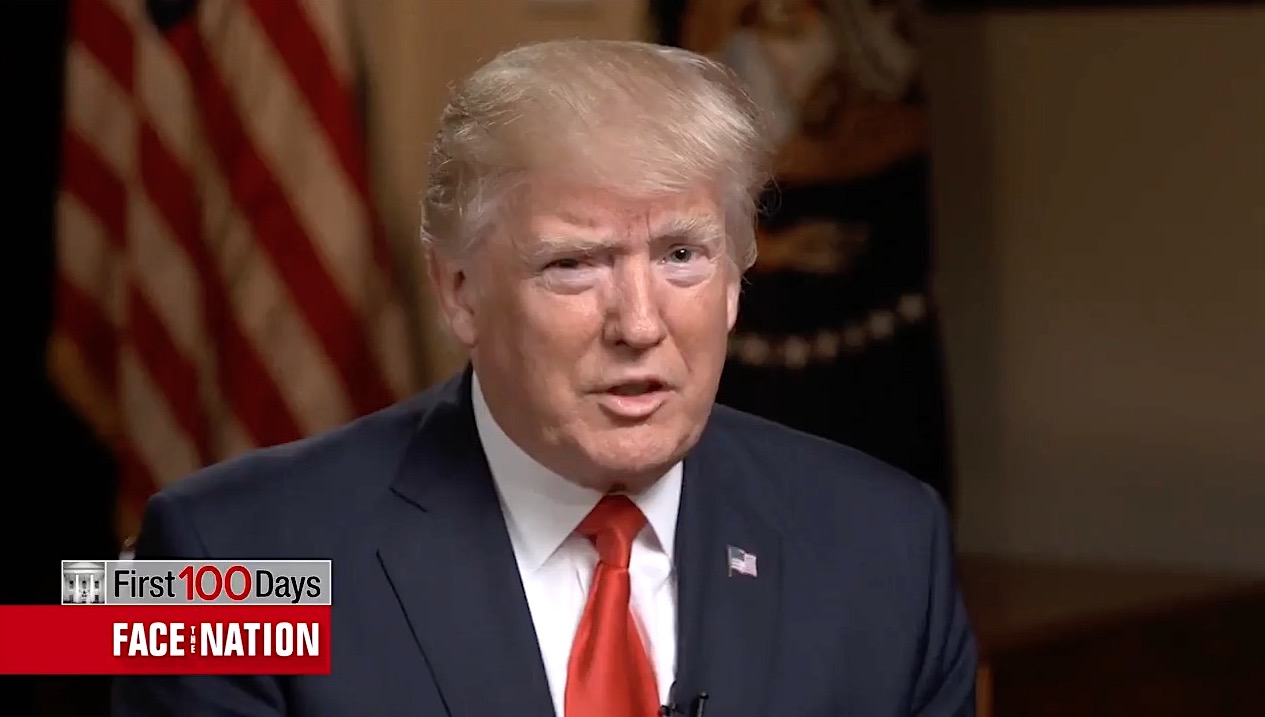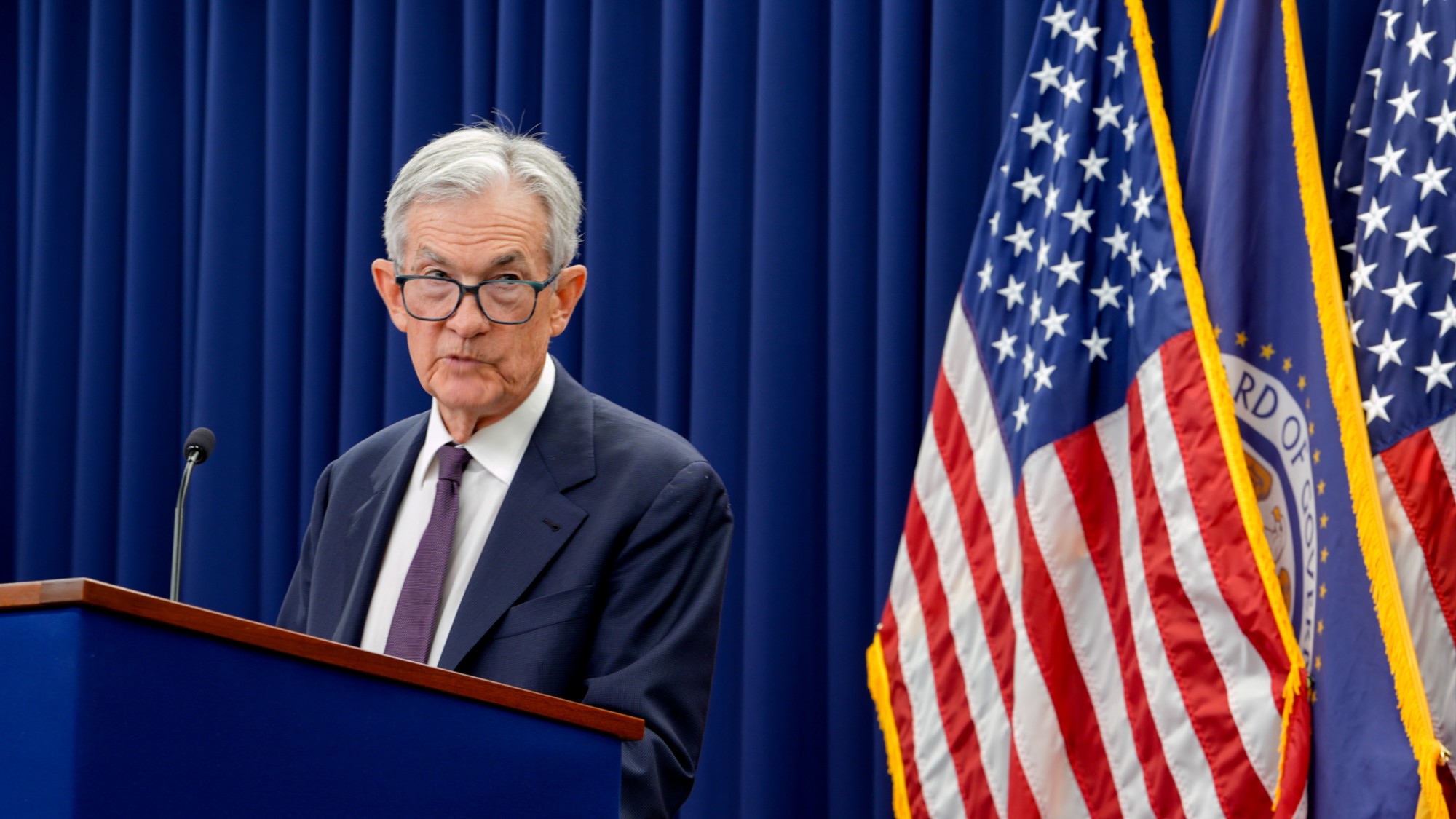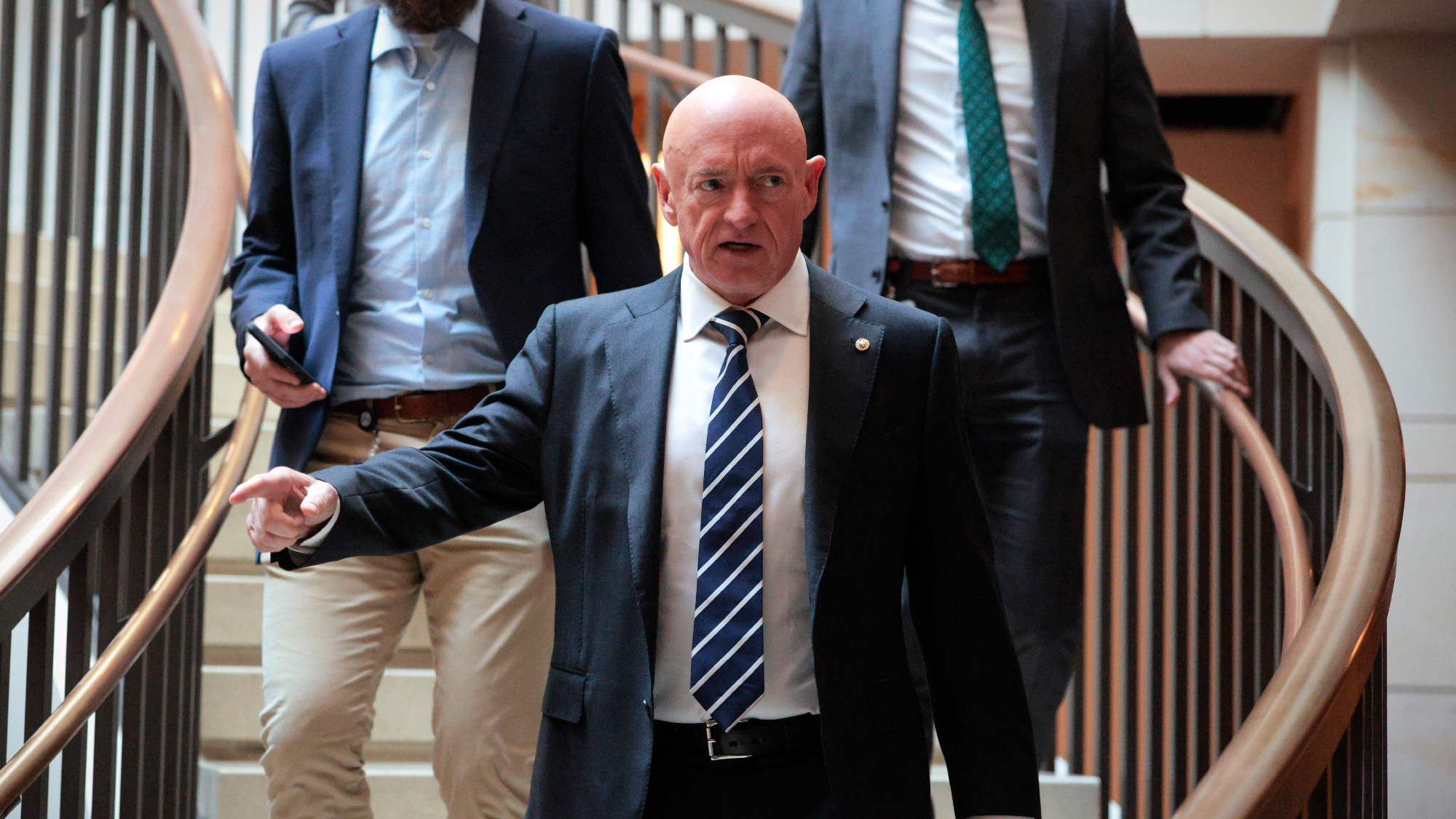Should America be concerned that President Trump thinks its system of government is 'archaic'?


A free daily email with the biggest news stories of the day – and the best features from TheWeek.com
You are now subscribed
Your newsletter sign-up was successful
In a Fox News interview broadcast Friday night, President Trump said four times that America's system of government is "archaic" and moves too slow. "We don't have a lot of closers in politics, and I understand why: It's a very rough system, it's an archaic system," he said at one point. At another: "You look at the rules of the Senate, even the rules of the House — but the rules of the Senate and some of the things you have to go through — it's really a bad thing for the country, in my opinion. They're archaic rules. And maybe at some point we're going to have to take those rules on, because, for the good of the nation, things are going to have to be different."
Trump made a similar point on Sunday's Face the Nation. John Dickerson asked Trump what he's learned in his first 100 days "that you're going to adapt and change, because all presidents have to at this stage." After Trump said he's learned that the media is very "dishonest," he tackled the "system":
It's just a very, very bureaucratic system. I think the rules in Congress and in particular the rules in the Senate are unbelievably archaic and slow moving. And in many cases, unfair. In many cases, you're forced to make deals that are not the deal you'd make. You'd make a much different kind of a deal. You're forced into situations that you hate to be forced into. I also learned ... the Democrats have been totally obstructionist. [Trump, Face the Nation]
Trump specifically criticized the Senate filibuster, notes Aaron Blake at The Washington Post, but combined with his comments challenging the right of the judiciary to constrain him and "his past admiration for authoritarian leaders," Trump's comments about the "archaic" system suggest "a president, yet again, who doesn't agree with his own powers being limited or even questioned."
The Week
Escape your echo chamber. Get the facts behind the news, plus analysis from multiple perspectives.

Sign up for The Week's Free Newsletters
From our morning news briefing to a weekly Good News Newsletter, get the best of The Week delivered directly to your inbox.
From our morning news briefing to a weekly Good News Newsletter, get the best of The Week delivered directly to your inbox.
On CBS News Sunday, Dickerson suggested that Trump is just frustrated with the pace of government. "All presidents feel constrained by the courts and by Congress," he said, and in some ways "this is a traditional thing with presidents." Trump "is a little less schooled in the separation of powers than maybe some previous presidents, though," Dickerson conceded, "so he sees these as obstacles that can be removed, whereas some people see it as the genius of the American system designed so many years ago." Peter Weber
A free daily email with the biggest news stories of the day – and the best features from TheWeek.com
Peter has worked as a news and culture writer and editor at The Week since the site's launch in 2008. He covers politics, world affairs, religion and cultural currents. His journalism career began as a copy editor at a financial newswire and has included editorial positions at The New York Times Magazine, Facts on File, and Oregon State University.
-
 Minnesota's legal system buckles under Trump's ICE surge
Minnesota's legal system buckles under Trump's ICE surgeIN THE SPOTLIGHT Mass arrests and chaotic administration have pushed Twin Cities courts to the brink as lawyers and judges alike struggle to keep pace with ICE’s activity
-
 Big-time money squabbles: the conflict over California’s proposed billionaire tax
Big-time money squabbles: the conflict over California’s proposed billionaire taxTalking Points Californians worth more than $1.1 billion would pay a one-time 5% tax
-
 ‘The West needs people’
‘The West needs people’Instant Opinion Opinion, comment and editorials of the day
-
 Trump sues IRS for $10B over tax record leaks
Trump sues IRS for $10B over tax record leaksSpeed Read The president is claiming ‘reputational and financial harm’ from leaks of his tax information between 2018 and 2020
-
 Trump, Senate Democrats reach DHS funding deal
Trump, Senate Democrats reach DHS funding dealSpeed Read The deal will fund most of the government through September and the Department of Homeland Security for two weeks
-
 Fed holds rates steady, bucking Trump pressure
Fed holds rates steady, bucking Trump pressureSpeed Read The Federal Reserve voted to keep its benchmark interest rate unchanged
-
 Judge slams ICE violations amid growing backlash
Judge slams ICE violations amid growing backlashSpeed Read ‘ICE is not a law unto itself,’ said a federal judge after the agency violated at least 96 court orders
-
 Rep. Ilhan Omar attacked with unknown liquid
Rep. Ilhan Omar attacked with unknown liquidSpeed Read This ‘small agitator isn’t going to intimidate me from doing my work’
-
 Democrats pledge Noem impeachment if not fired
Democrats pledge Noem impeachment if not firedSpeed Read Trump is publicly defending the Homeland Security secretary
-
 The billionaires’ wealth tax: a catastrophe for California?
The billionaires’ wealth tax: a catastrophe for California?Talking Point Peter Thiel and Larry Page preparing to change state residency
-
 Hegseth moves to demote Sen. Kelly over video
Hegseth moves to demote Sen. Kelly over videospeed read Retired Navy fighter pilot Mark Kelly appeared in a video reminding military service members that they can ‘refuse illegal orders’
